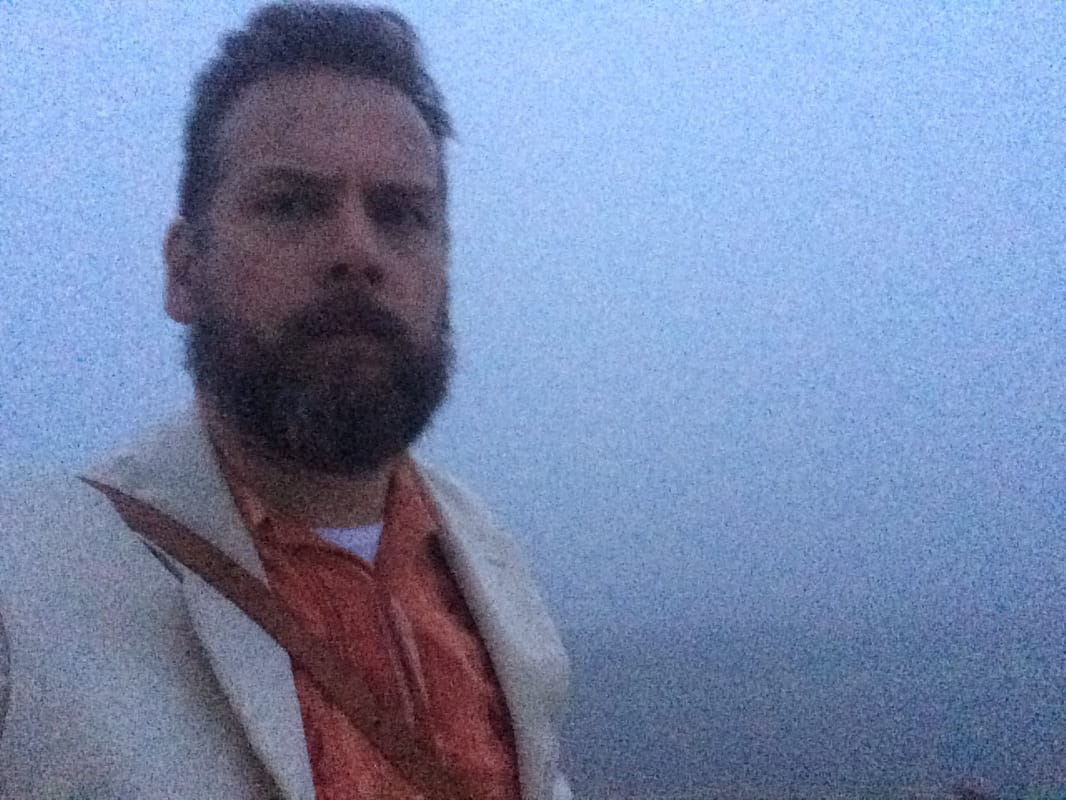|
Sometimes you watch a big film, a classic, and you come to a surprising conclusion. This film is under-rated. Okay, how can that be? 2001 is almost universally acknowledged as a classic of its genre and a masterpiece in the history of world cinema, but there's something about it that makes me remember Bill Shankley's famous insistence that 'Football wasn't life and death: it's more important than that.'
It isn't a masterpiece; it's much better than that. Partly, this is because, more than any other film, 2001 got me interested in cinema as an art form. I remember watching this film on several occasions as a child. The first time was on the BBC during the Xmas season and I couldn't make head nor tail of it. Monkeys, music, nobody talking, space ships but slow space ships and then I had to go to bed. All I knew was that it wasn't Star Wars. The second time we were visiting my aunt's and I had built this up so that I had basically booked their television. Again it was Xmas. BBC2. All afternoon. It was the first video cassette I ever bought, a dreadful pan and scan from Asda in a greenish box with an advert fro Kelly's Heroes at the beginning. Re-watching it on Blu-ray, the film looks wonderful and especially the colours. The shiny red of the space suit, the green head rest of the bed, the blacks of spaces, the ochre dusk of Africa. I read Arthur C. Clarke's novel which was written in conjunction with the film, and his making of book, and the short story 'Sentinel' on which it was based. Originally, I was more impressed with Arthur C. Clarke than Kubrick. My switching of allegiance (having read also at least one of Clarke's sequels) was a moment of real maturation. A point similar to that when I realised that Jean Michel Jarre was not playing music of the future. The narrative of 2001 is flimsy. Story just isn't that important. It's the poetry of cinema that matters. The monolith I always linked with Kubrick's name--as in, you know, it's a brick. Hal's super smooth oddly innocent and yet murderous intelligence. The red spot with the swirls. How it takes on a kind of personality seems to change even as we know it doesn't. After the pyrotechnics of the star gate sequence that even today dazzle in a way that cinema rarely, rarely does, comes the ultimate horror story. The disconcerting fast forward through a life always upset me as a child and upsets me more now. When I was a kid, I thought it was a weird alien process. He was in a zoo and being studied or something. Now I realise it's just life. One minute you're having a crazy ride, then you notice you have grey hairs then you break a glass and then you're bedridden. And finally you're an opaque embryo thing reminiscent of Hal's red eye. One thing I noticed on this viewing was the Kubrick's credit card matches the conjunction of the monolith with the moons of Jupiter just before the star gate sequence. But there are so many things to notice and so many things to love. I know the film isn't perfect. It's actually better than that.
2 Comments
I teach 2001, John, film and book, and it's always interesting to gauge student reaction. They often find the film slow, and the odd one can't get to grips with it at all; but most really appreciate it and we have fascinating discussions, about HAL and evolution and structure, as well as the texture of the film. It is an extraordinary film.
Reply
John Bleasdae
16/12/2011 09:14:49 pm
The slowness of the film is key. That measured pace is about participating in the film rather than simply watching it. We move through the film at the same stately pace as the Discovery through space, as the astronauts in zero gravity, or even Dr Floyd's pen floating. Even at the beginning we are learning the watchfulness of the apes. This pace would be taken to a new level for Barry Lyndon which is as slow as the Eighteenth Century.
Reply
Leave a Reply. |
AuthorJohn Bleasdale is a writer. His work has appeared in The Guardian, The Independent, Il Manifesto, as well as CineVue.Com and theStudioExec.com. He has also written a number of plays, screenplays and novels. Archives
March 2019
|
 RSS Feed
RSS Feed


